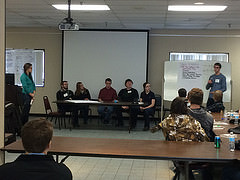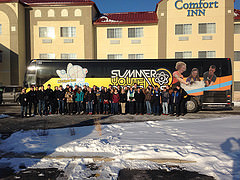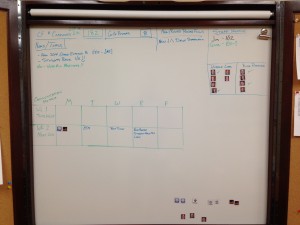India is a country of roughly 1.2 billion people, 600 million below the age of 25. Its K-12 educational programming is called a 10+2+3 system. The first 10 years is divided into 5 years of primary education, next 3 years is upper primary, and the final 2 years are high school. The “+2” stage is called the higher secondary stage which leads to “+3”, their University system. Today India has over 460+ central and state Universities, 190+ private universities, and 34,000+ colleges, of which 1,800+ serve women only.
The education system in India is now facing the challenge of moving from producing graduates with skills in each field of study to producing young professionals who are competent, or possess the ability to immediately apply those skills in industry. This challenge is coming from industry in India that has been expanding on average between 6% – 10% annually (the U.S. has been 3% or less since 2008). They need talent that can contribute immediately, the day they are hired. Currently, they have training programs lasting 12 to 18 months to get new graduates up to speed and productive.
The Indian education system is one that relies on testing of basic knowledge to advance academically. Like many education systems it focuses on memorizing academic content. Testing measures the level which this base knowledge is attained. The measurement is not on the ability to apply this knowledge to solve real world problems. India’s challenge; alter the system to produce young graduates that not only possess the knowledge (skill) but also ones that can easily and broadly apply that knowledge in a job situation (competence).
How can this be done? The educational system in India believes the approach to addressing this is broad based. First, there must be more interaction between industry and their educational institutions in the areas of research and student based problem solving of industry problems while they are still students. Second, alter the curriculum to include more project-based learning involving immediate application of the skills or knowledge they are acquiring.
Next is more internship experiences in industry as they are fulfilling their course work. Again, allowing students to apply their knowledge in a real world setting. Industry leaders in India such as Honeywell, Thermax, and Tata Consulting Services all continue to advance extensive internship programs to support the development of competent students who they expect to convert to full-time employees when they graduate.
A change that will be slower to transition is altering the established culture of testing which is strictly focused on the skills. There has been much controversy internationally on how to measure acquisition of skills and competencies in a way that can be both time-efficient and cost-effective. Those that find the answer will be closer to the goal of mass production of competent talent.
Intellectual talent is the most valuable renewable resource on earth. Industry sees this value and rewards talent with high salaries, while aggressively recruiting at the educational institutions that can produce competent students. In today’s global marketplace, we must ensure our educational efforts exceed our not-so-distant neighbors, allowing us to produce competent graduates that will attract both industry and valued careers.


